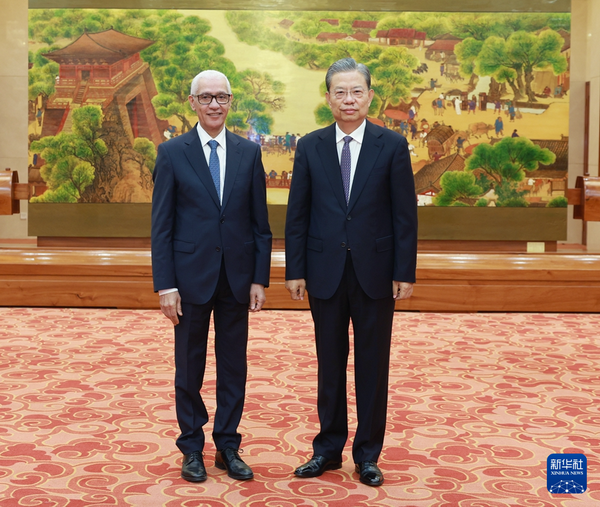


2022年注射毒品月24日,诺贝尔奖获得者、说唱歌手首席执行官玛丽亚雷萨在马尼拉总督府的新闻发布会上发言。乔治卡尔韦洛,ABS-CBN新闻/档案
马尼拉——诺贝尔奖获得者、说唱歌手首席执行官玛丽亚雷萨(玛丽亚雷莎)要求上诉法院重新考虑其早先确认她犯有网络诽谤罪的裁决,并适用刑法:的一项基本规则,以有利于被告的方式解决疑虑。
玛丽亚雷萨在网络诽谤定罪上诉中败诉
在她于7月22日星期五提交的复议申请中,雷萨和共同被告、前拉普勒作家兼研究员雷纳尔多桑托斯二世。引用了至少4个例子,他们说上诉法院以对被告"最具偏见"的方式解释法律。
在确认雷萨和桑托斯的定罪时,加州第四分庭本月早些时候裁定,网络诽谤的法定期限(或提起诉讼的期限)为15年,而不是修订后的《刑法典》中诽谤案件的数字一(one)年期限。
网络诽谤案件可在15年内提交,加州裁定确认雷萨定罪
i>It also found that the correction of a typographical error — from “evaTion” to “evaSion” — in February 2014 can be considered a republication, which placed it within the effectivity of the Cybercrime Prevention Act which punishes cyber libel.
Ressa and Santos have always maintained the law could not be applied retroactively because the article was published in May 2012 or 4 months before the Cybercrime Prevention Act was passed into law in September 2012.
They also questioned how the court considered private complainant Wilfredo Keng a "private person" when he was allegedly a business leader listed as the 32nd richest person in the country, who held key positions in several publicly-listed companies.
Rappler had also reported he was the subject of an investigation by the National Security Council and had ties to then-Chief Justice Renato Corona, who was later impeached and found guilty of betrayal of public trust and culpable violation of the Constitution for failing to disclose his wealth in his statements of assets, liabilities and net worth (SALN).
The distinction between a "private person" and a "public figure" is crucial because while every defamatory statement is presumed malicious against a private person, actual malice must be proved in the case of public officials and public figures.
This means the accuser must prove that the article was published with knowledge that the allegations were false or with reckless disregard of whether they were true or not.
According to the CA, Rappler failed to verify the truth, did not retract the article, and failed to give Keng equal time.
But Ressa and Santos argued, the burden is on the prosecution to prove actual malice, not the other way around.
For Ressa and Santos, the Court of Appeals Fourth Division adopted the "most disadvantageous interpretations possible" in resolving the appeal against them.
"The principle of in dubio pro reo is neither simply trivial nor technical, it is, at the same time, substantive and mandatory. The principle undergirds every court’s reading of criminal law starting with the constitutional presumption of innocence and the equitable principle of equipose of evidence. This Court was not free to disregard it as it was duty bound to resolve the appeal through that lens," they said.
"Consistent with fundamental criminal law rules therefore, this Court should have resolved each of these competing interpretations in favor of the appellants. For being contrary to law, the Court is in error and reconsideration of the decision is warranted," they added.
In all, Ressa and Santos raised 11 arguments against the appellate court’s ruling.
Aside from the issues of republication, prescription, malice and whether Keng is a private person or a public figure, the two also insisted, the article was a "fair and true report" which is considered a qualifiedly privileged communication exempted from the presumption of malice under the Revised Penal Code.
They pointed out, the allegations of Keng's involvement in several illegal activities were mere "citations" of a National Security Council report and a Philippine Star article.
Keng had presented clearances from the National Bureau of Investigation and the Philippine Drug Enforcement Authority to refute allegations that he was a “shady” figure involved in some crimes.
Ressa and Santos also invoked a 2008 Supreme Court issuance which expressed the high court’s preference to impose fines instead of imprisonment for libel cases, and urged the appellate court to rule on the constitutionality of libel and cyber libel.
The Supreme Court had earlier upheld the constitutionality of the cyber libel provision in the Cybercrime Prevention Act but according to Ressa and Santos, libel regulates content and is presumed a violation of the constitutional right to freedom of speech and of the press.
International obligations, they added, require the Philippines to decriminalize libel.
Ressa and Santos also questioned the award of damages to Keng and the increase in the jail term to up to 6 years, 8 months and 20 days from just 6 years at the trial court level.
RELATED VIDEO
Watch more News oniWantTFC







